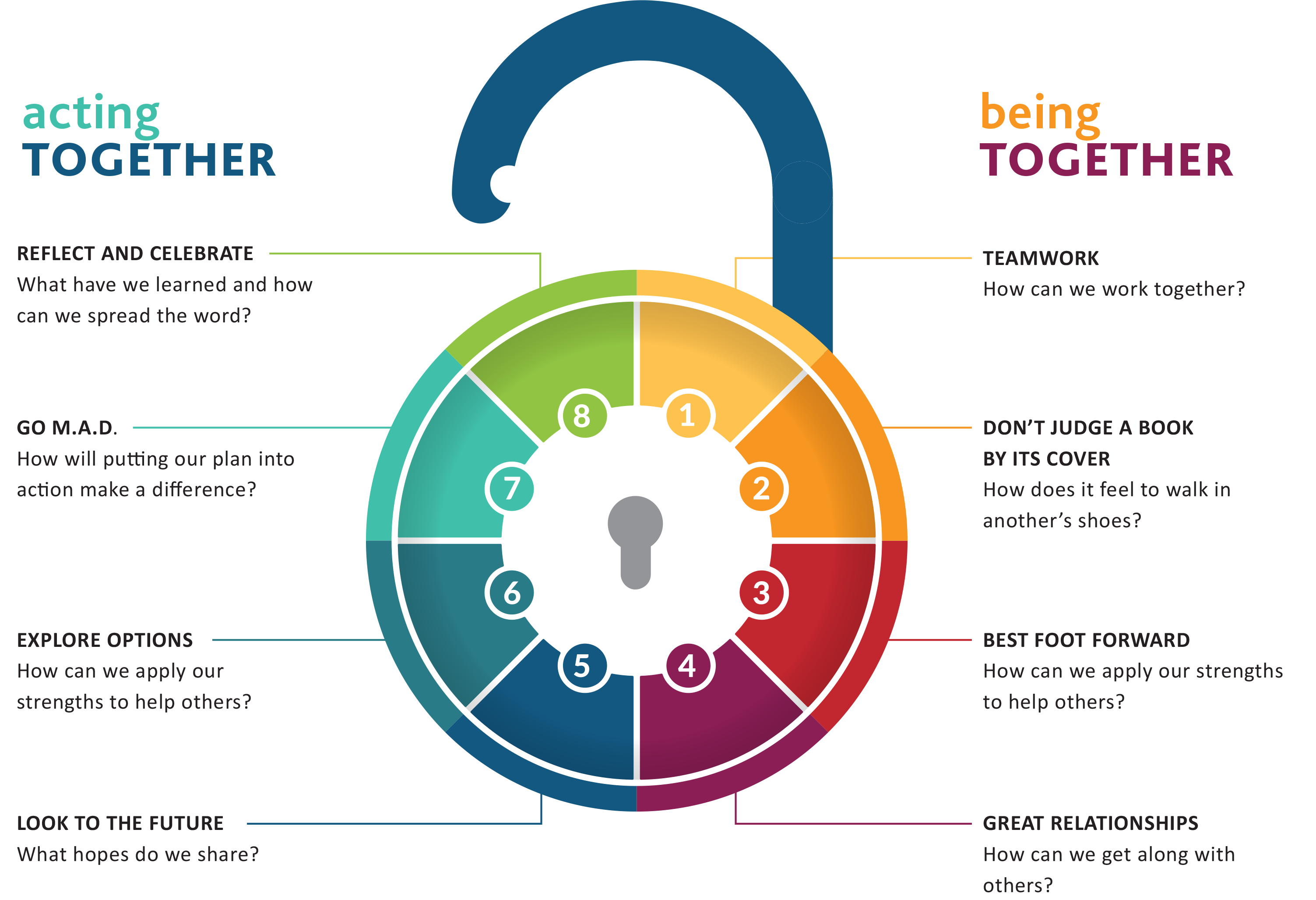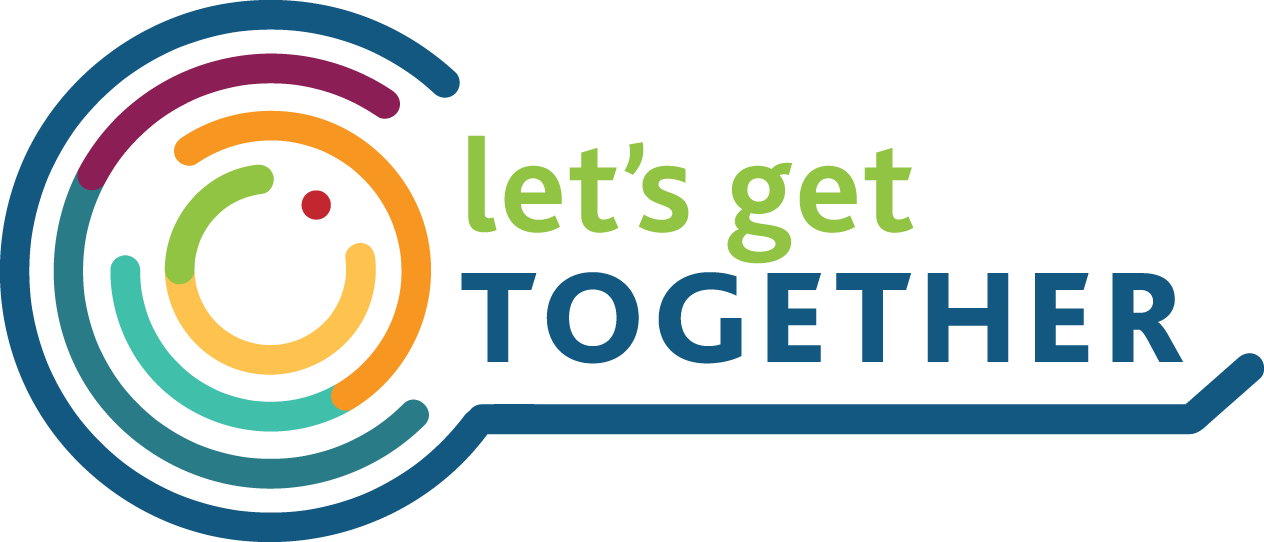
Program Overview
The Let’s Get Together program is designed for schools wanting to partner with their students and the wider community to create a more respectful school environment. It does this by addressing discrimination and by building diversity competence in students so that they are motivated to address bullying behaviours and become agents for change.
Changing behaviours for a respectful school community does not happen overnight. What is different about this program is that it uses a partnership approach and teachers are supported on the journey by skilled staff from A Fairer World and our wide network of Tasmanian community organisations. The program is written specifically for Tasmanian schools and the support is available locally.
Program intent
The Let’s Get Together program is divided into two parts – Being Together and Acting Together.
Combined they provide an 8 step learning process (the 8 Keys to Harmony) for students to explore the underlying causes of bullying and other discriminatory behaviours and to create tangible outcomes for themselves and the school in terms of improving the school environment. Through this, they experience the power of being active citizens who can make a difference.
- Being Together (Keys 1 to 4) is recommended for primary schools or secondary schools new to the Let’s Get Together journey.
- The full program – Being and Acting Together (Keys 1 to 8) – is recommended for secondary schools ready for the whole Let’s Get Together journey.
The program taps into student concerns – their need to explore their identity, their need for greater agency and their thirst for greater meaning in their learning. It is designed to:
- Empower students in their own learning and help them to develop collective agency,
- Enable students to use their school environment as a social learning opportunity to explore what it means to try to make a difference,
- Enable students to work on topics of their own choice while deepening their understanding of key concepts such as discrimination, identity, stereotypes, change, upstanders and conflict,
- Provide opportunities for student personal inquiry so that they become more mindful of their interactions and develop social and emotional learning competencies, and
- Provide opportunities for students to collaboratively create social actions. These actions are designed to generate conversations in the school, provide students with authentic feedback and help them to develop their skills in changing cultural “norms”.

